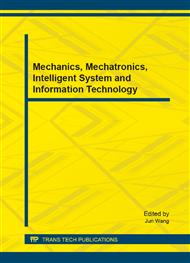p.296
p.302
p.307
p.312
p.316
p.320
p.325
p.332
p.339
Information Entropy Based Fuzzy Pattern Recognition Model for Identification of Vulnerable Groups in Water Resource Conflicts
Abstract:
Identification of vulnerable groups in water resource conflicts is to improve the identification of vulnerable groups in the allocation of water rights and water markets water rights system. There are two difficulties: one is how to determine the weight of evaluation indexes; another is how to effectively deal with the subjectivity of the evaluation process and the low resolution. Therefore, this paper proposes “Information Entropy Based Fuzzy Pattern Recognition Model for Identification of Vulnerable Groups in Water Resource Conflicts (EFPQ-VRWC)” according to the fuzzy pattern recognition based on the combination of the maximum entropy principle and genetic algorithms. And identifying vulnerable groups of Daling River Basin in Liaoning Province, it illustrates the method of application value. And evaluation results have continuity, comparability and versatility so that can accurately reflect the level of vulnerable groups in water resource conflicts.
Info:
Periodical:
Pages:
316-319
DOI:
Citation:
Online since:
August 2014
Authors:
Price:
Сopyright:
© 2014 Trans Tech Publications Ltd. All Rights Reserved
Share:
Citation:


